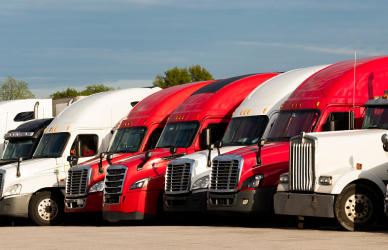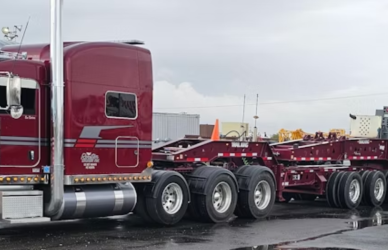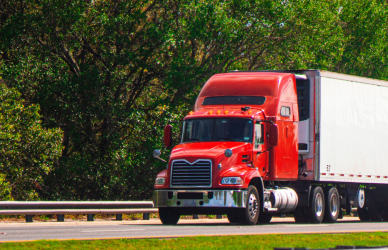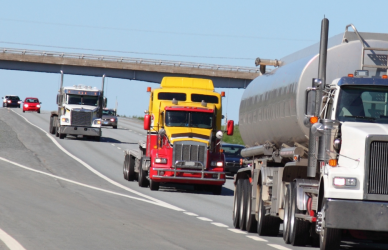With the merger of Canadian Pacific and Kansas City Southern, CPKC has become a new kind of industry player – The first single-line railway that spans across Canada, the U.S., and Mexico. This move opens up competition in what is traditionally seen as an exclusively trucking market — creating broad questions about how this will shake up current transportation dynamics.
CPKC President and CEO Keith Creel said the move will “bring new competition into the North American rail industry at a time when our supply chains have never needed it more… [and] take trucks off public roads.”
Canadian Pacific has said that their new intermodal services are expected to drastically reduce greenhouse gas emissions and highway maintenance costs over the next five years. The company also predicts a reduction of nearly two billion miles traveled in truck vehicles within twenty years, saying that 64,000 long-haul truck shipments will be diverted to rail.
Avery Vise, vice president of transportation for freight intelligence firm FTR, cast doubt on the reported truck numbers.
“The Surface Transportation Board touted the removal of 64,000 truckloads from the road each year and resulting benefits for the environment, highway safety, and congestion,” Vise said.
FTR’s vice president of rail and intermodal, Todd Tranausky, said that a close eye will be kept on whether the rail company can live up to its environmental promise during a long, seven-year oversight period.
He went on to point out that despite the rail industry facing troublesome service levels in recent times, its operations have seen a remarkable upswing this year.
“Market dynamics are another major factor. Due to service and transit times, intermodal tends to be less competitive when trucking capacity and rates are favorable for shippers as they are now. That means that the merger probably will not have as much effect now as it will the next time, we see an upturn in trucking.”
Vise added that one area where we could see increased competition in the short term is in temperature-controlled, intermodal shipments which is an area of focus for CPKC. Tranausky drove this point home by adding that the first service they will cover is cross-border perishable transport.
“Even if we see a significant diversion of truck traffic to intermodal, a net decrease in truck transportation is not a given,” Vise said. “Arguably, a more efficient transportation network between the U.S. and Mexico bolsters ongoing moves toward nearshoring. If that proves to be the case, the resulting gain in overall commerce between the two countries could mean more transportation for both rail and trucking.”
Cross-border trade between the U.S. and Mexico is expected to grow in thanks to nearshoring of U.S.-based companies, according to the Transportation Statistics Annual Report. The report reveals that trucking remains dominant when it comes to freight weight with 35% being transported this way last year.
This will likely mean a shifting of freight flows from U.S. coastal ports to the U.S.-Mexico border.
Despite the upheaval of 2020, Laredo and Detroit held on as two of America’s top freight gateways. Trucks carried an impressive share of total trade between Canada and Mexico: 36% in Motor City and 22% just south along the Texas-Mexico border.
About the Merger
CP completed its $31 billion acquisition of KCS in late 2021, which was approved by federal regulators on March 15.
CPKC, with its global headquarters located in Alberta, Canada has announced that they are now the only railway connecting North America and they have access to ports around the continent.
With the recently completed merger between Canadian Pacific Railway and Kansas City Southern its expansive 20,000 miles of rail and almost 20,000 staff members added to the roster, this newly-formed entity is now one of America’s premier Class 1 railways in terms of revenue. Its full integration period should lead up over three years for maximum efficiency gains across their network.
CPKC is investing deeply into rail infrastructure, with over $275 million budgeted towards upgrades on their main line between the Upper Midwest to Louisiana. This investment will increase capacity while also improving overall safety along this essential north-south corridor.
CPKC will also support the expansion of Amtrak and other passenger services on the CPKC network.
Source: truckinginfo











